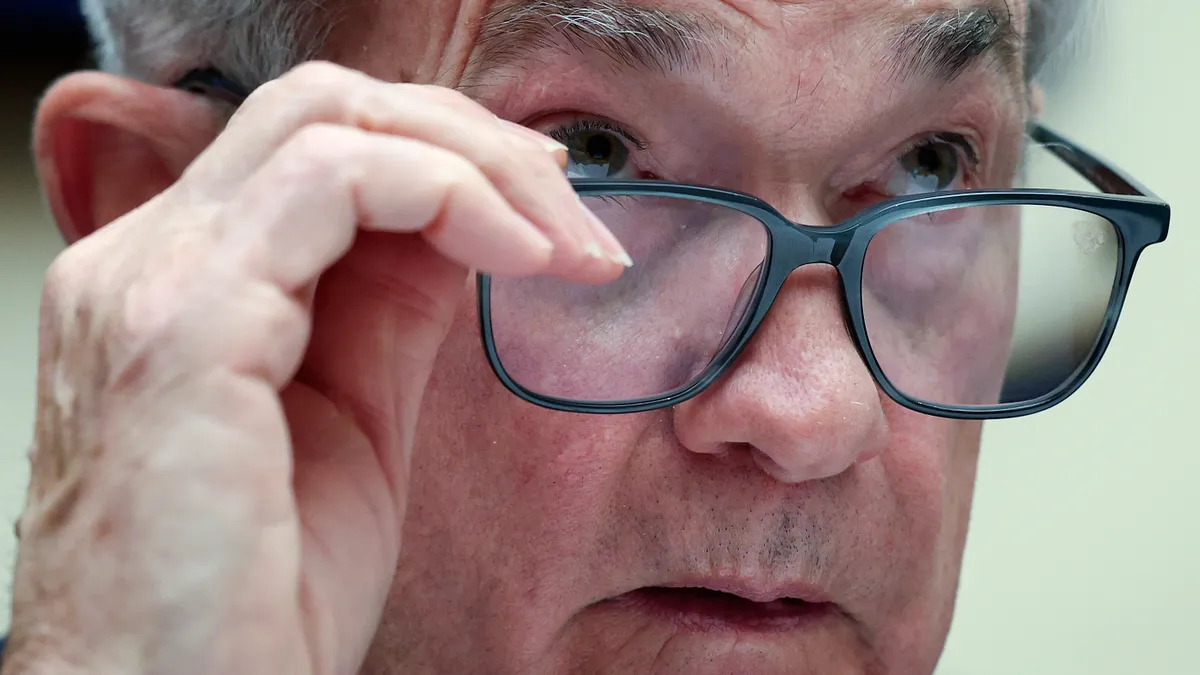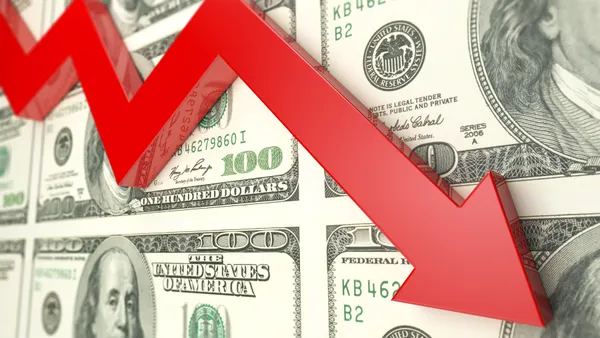Dive Brief:
- Federal Reserve Chair Jerome Powell said Tuesday that policymakers may need to raise borrowing costs higher than they forecast in December to combat persistent price pressures, especially in services excluding housing.
- “The latest economic data have come in stronger than expected, which suggests that the ultimate level of interest rates is likely to be higher than previously anticipated,” Powell said in testimony to the Senate Banking Committee. “If the totality of the data were to indicate that faster tightening is warranted, we would be prepared to increase the pace of rate hikes.”
- Fed officials during the past 12 months have increased the federal funds rate from near zero to a range between 4.5% and 4.75%. In a median estimate in December, they forecast that their rate hikes would peak this year at 5.1%. During their March 21-22 meeting, “the ultimate rate that we write down may well be higher than what we wrote down in December,” Powell said.
Dive Insight:
Powell and other policymakers after their Feb. 1-2 meeting signaled that they would likely raise the benchmark interest rate by a quarter percentage point at scheduled gatherings this month and in May.
Since then, inflation, labor demand and other economic data have exceeded their expectations, Powell told the committee.
“The process of getting inflation back down to 2% has a long way to go and is likely to be bumpy,” he said, referring to the Fed’s 2% inflation target. “We still have work to do.”
Consumer spending, which fuels nearly 70% of economic growth, rose 1.8% in January compared with December in the biggest increase in nearly two years. Businesses expanded payrolls by 517,000 — more than twice the number forecast by economists — and unemployment fell to 3.4%, the lowest level since 1969.
Meanwhile, the central bank’s preferred inflation gauge — the core personal consumption expenditures price index excluding food and energy — rose to an annual rate of 4.7% in January from 4.6% in December. Also, consumer prices increased 0.5% in January in the biggest gain in three months.
“The data from January on employment, consumer spending, manufacturing production and inflation have partly reversed the softening trends that we had seen in the data just a month ago,” Powell told the committee. “Inflationary pressures are running higher than expected” by policymakers at their Feb. 1-2 meeting.
The central bank is tracking inflation across three fronts: core goods, housing services and services excluding housing, Powell said.
While the first two categories show signs of cooling, “there is little sign of disinflation thus far in the category of core services excluding housing, which accounts for more than half of core consumer expenditures,” he said. The category includes entertainment, health care, hospitality, transportation and other services.
“To restore price stability, we will need to see lower inflation in this sector, and there will very likely be some softening in labor market conditions,” Powell said.
Still, rising borrowing costs will not necessarily trigger widespread layoffs, he said.
“We don’t believe we need to have a very significant downturn in the labor market,” he said, noting that in December there were 1.9 job openings for every unemployed worker.
“You’ve got all these job openings and in principle, you could reduce the job openings without seeing a really significant increase in unemployment,” he said. Fed officials believe “there’s a path to restoring 2% inflation with less significant effects on the labor market than have typically been seen in downturns.”
Powell reiterated that Fed officials are determined to reduce inflation to 2% while highlighting the challenge of forecasting given pandemic-induced supply chain disruptions, Russia’s invasion of Ukraine and other extraordinary economic shocks.
“We have many unusual factors, and I don’t think anybody knows with confidence how this is going to play out,” he said.
The Labor Department on Friday plans to release data on hiring in February. It is scheduled on March 14 to release data on the Consumer Price Index for February.
Powell is scheduled to testify before the House Financial Services Committee on Wednesday.















